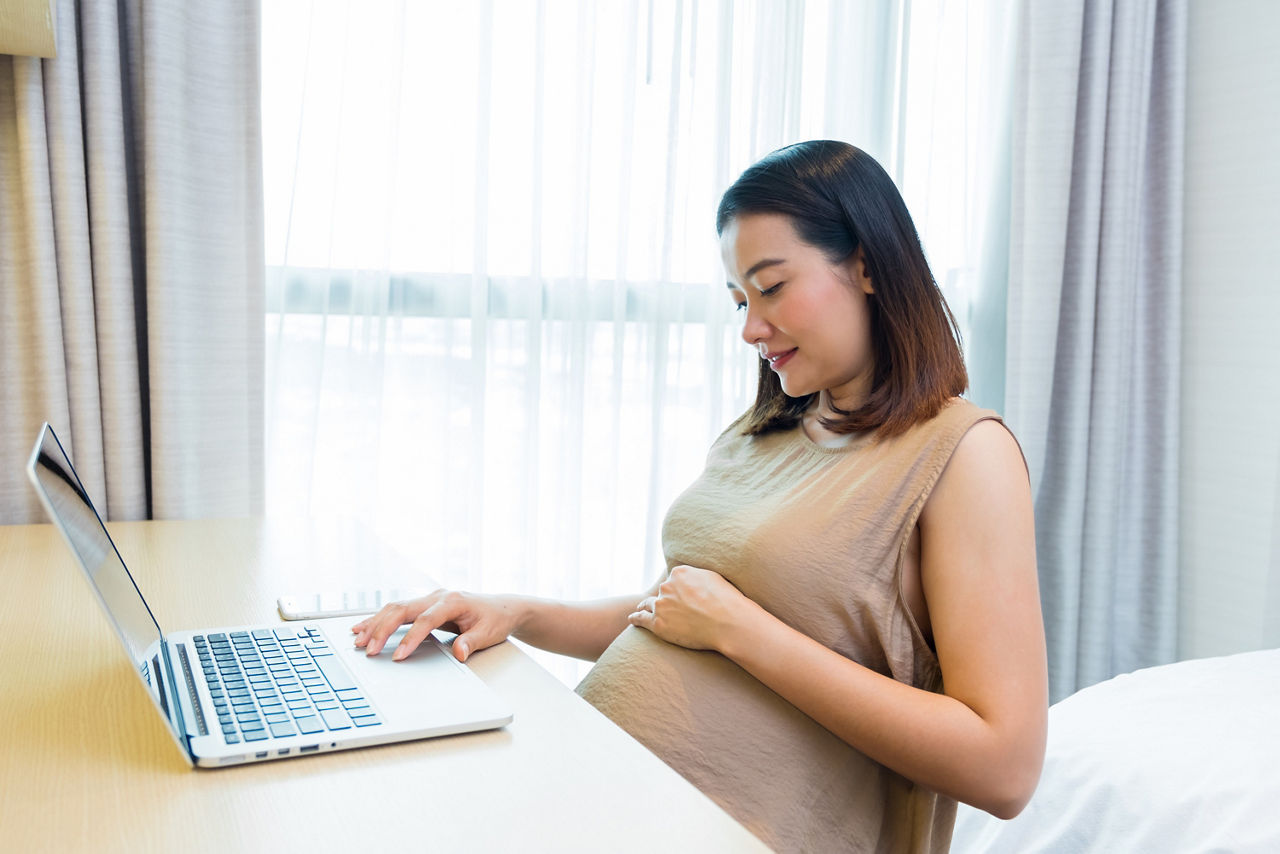Breastmilk is the best for babies. The World Health Organisation recommends exclusive breastfeeding for the first six months of life. Unnecessary introduction of bottle feeding or other food and drinks will have a negative impact on breastfeeding. After six months of age, infants should receive age-appropriate foods while breastfeeding continues for up to two years of age or beyond. Consult your doctor before deciding to use infant formula or if you have difficulty breastfeeding.
- Week 1
- Week 2
- Week 3
- Week 4
- Week 5
- Week 6
- Week 7
- Week 8
- Week 9
- Week 10
- Week 11
- Week 12
- Week 13
- Week 14
- Week 15
- Week 16
- Week 17
- Week 18
- Week 19
- Week 20
- Week 21
- Week 22
- Week 23
- Week 24
- Week 25
- Week 26
- Week 27
- Week 28
- Week 29
- Week 30
- Week 31
- Week 32
- Week 33
- Week 34
- Week 35
- Week 36
- Week 37
- Week 38
- Week 39
- Week 40
Week 25 of Your Pregnancy
If you’re a working Singaporean mum, you must be juggling career and pregnancy like a pro! This week, your baby is preparing for life outside the womb. Though you are watching your weight, you’ll need to add more calories to your diet from now.
Your umbilical cord is now thick and strong, with one vein and two arteries running through it1. These deliver essential nutrients and oxygen to your baby, and passes out your baby’s waste2. Given your baby’s improved coordination, your baby can now make a fist and even reach for their feet1. It may even move around in response to your touch on the outside of your bump3!
Your Baby
Your baby's lungs are getting ready for their first breath, and the nerves around your baby's mouth are also developing. These nerves help your baby find your nipple after birth. Your baby's sense of hearing is also being stimulated, you'll realise some types of music may be more soothing to your baby than others. Meanwhile, your baby sucks on the thumb, weights at about 660 grams and with a length of about 34 centimetres.
Your body
Your breasts are now not only larger but blue blood vessels may show on the surface. In addition, your belly may also show visible stretch marks. Take note to provide care for your skin like applying stretch mark cream.
The Neglected Part of your Body during Pregnancy - the Dam
The area between the vagina and anus, also called the dam, is certainly a neglected area that is extremely stretched at birth and can break under certain circumstances. In order to avoid this and the associated symptoms, you can strengthen the dam with regular massage and pelvic floor exercises and stretch the muscles. Talk to your doctor and seek for advise for this.
Back Pain Relief
As your belly grows larger, your back hurts and all you want to do is lie on the floor! Indeed, back pain is a common symptom during pregnancy, especially between the 5th and 7th months. (SmartParents) To start building a better back and keep your body comfortable, practice these back pain relief tips! (Parents)
- Avoid standing or sitting for long periods of time
- Meditate (inhale and exhale) in silence or to music
- Go for a swim to take pressure off the spine
- Wear a maternity belt to help hold your belly up
- Ditch the high heels for comfortable shoes with arch support
Add a Little Extra Calories
Eat more, they said. Eat for two, they said. Indeed, now that you’re almost into your third trimester, you’ll need to increase your daily calorie intake! In general, you’ll need about 200 more calories a day in your last trimester5. However, this amount depends on factors such as your metabolism, how active you are, and how many babies you’re expecting.
Whatever the case, make every bite count! Be sure to maintain a healthy, balanced pregnancy diet, because it’s important that your extra calories come from healthy, nutritious foods.
Consider these nutritious 200-calorie pregnancy snacks!
- Bread with hummus, followed by three dried apricots
- A small bowl of muesli with semi-skimmed milk, and an apple
- Two slices of wholegrain bread, with a tablespoon of cottage cheese
- A low-fat yogurt with six almonds

Connect with our team of experts
We provide advice and support for you on your parenthood journey



